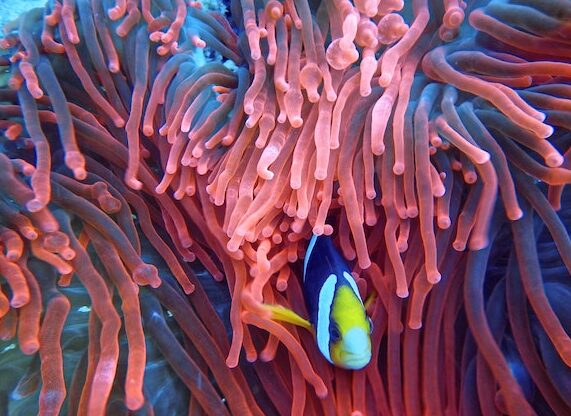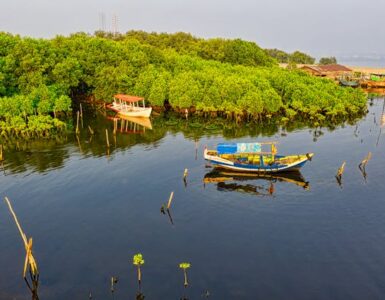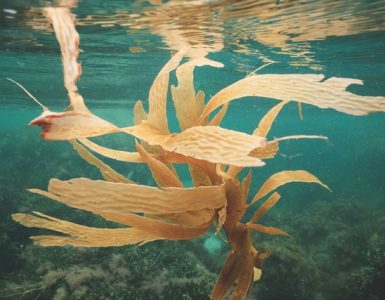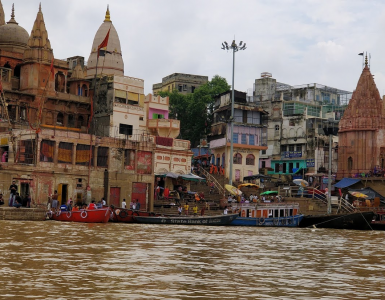Multiple research organisations, such as Coral Reef Watch (CRW), the International Coral Reef Initiative (ICRI), and the National Oceanic and Atmospheric Administration (NOAA), have confirmed that the world is experiencing a global coral bleaching event.

Since early 2023, mass bleaching of coral reefs has been confirmed throughout the Pacific Ocean, Red Sea, Persian Gulf, and Gulf of Aden.
Multiple factors are responsible for coral bleaching, including rising sea surface temperatures, heatwaves, ocean acidification, pollution and El Niño conditions in the equatorial Pacific Oceans.
Rising temperatures and ocean heat are killing the algae on corals or making them vulnerable to diseases. Once the coral is dead, it can become white, a process commonly called coral bleaching.
This is the fourth global event of coral bleaching on record and the second in the last 10 years.
The prevailing El Niño conditions are causing bleaching in the coral reefs in India as well. Corals are mainly found in regions of the Andaman and Nicobar Islands, the Gulf of Mannar, Lakshadweep, and the Gulf of Kachchh.
While the Andaman and Nicobar islands in the Bay of Bengal Sea have observed small-scale bleaching (15-18% in the South Andaman Islands only), the Lakshadweep islands in the Arabian Sea have seen widespread bleaching (84.6%).
Corals in the Gulf of Mannar lying on the southeastern tip of India and the west coast of Sri Lanka have seen moderate bleaching (27%).
The government has implemented several conservation measures for coral reefs in India under the Wildlife Protection Act of 1972 and the Coastal Regulation Zone (CRZ) notifications to regulate human activities impacting coral reefs.
To manage and protect coral reef ecosystems using specialised advanced technologies, the government has launched and supported several programs under different agencies and institutions
The National Centre for Sustainable Coastal Management (NCSCM) under the Government’s Ministry of Environment Forest and Climate Change (MoEF&CC) is working on the Coral Reef in situ Observation Network (CReON) program which focuses on long-term coral reef health monitoring, calcification rates and ocean acidification, based on the deployment of Data Buoy and Automated Weather Stations at various Coral Reef sites along the Indian Coast including Andaman & Nicobar and Lakshadweep Islands.
NCSCM has mapped 1439 sq km of coral reefs in India, as per the Coastal Regulation Zone Notification (CRZ), 2011 and 2019. Recently, NCSCM has submitted a proposal to the MoEF&CC to map the coral biodiversity of the Lakshadweep Islands, to determine the current extent and status (health) of the coral reefs of Lakshadweep under the National Coastal Mission.
Space Applications Centre (SAC), an institution of research under the aegis of the Indian Space Research Organisation (ISRO) in Ahmedabad, has undertaken a project on Inventory of Indian Coral Reefs: Mapping, monitoring and their Health Assessment at the behest of the Department of Biotechnology & Department of Space (DBT & DOS).
As part of this study, SAC is mapping the coral reef regions of India at a 1:25,000 scale and has mapped the reefs of Malvan, Maharashtra using Resourcesat-2 Linear Imaging Self Scanner (LISS) – IV sensor’s data pertaining to the 2020 timeframe using digital image processing, image classification and Geographic Information System (GIS) based post-classification analysis.
The new geospatial database is also compared with SAC, ISRO’s earlier coral reef database of the 2004-08 timeframe based on Resourcesat-1 LISS-IV and LISS-III sensors’ data for decadal monitoring.
Preliminary results from the project on Inventory of Indian Coral Reefs by SAC, Ahmedabad, indicate apparent loss of reef area for Malvan reef in Maharashtra over thirteen years (2007 to 2020).
The same condition is observed for four reefs (Koswari, Nalla Tanni Tivu, Pichaimoopan Valasai and Shingle Reef) over twelve to fourteen years (2004/05 to 2018) out of the eleven reefs mapped for the Gulf of Mannar.
Indian National Centre for Ocean Information Services (INCOIS) in Hyderabad under the Government Ministry of Earth Sciences (MoES) provides coral bleaching alert services based on satellite-derived sea surface temperature data for Indian coral ecosystems. These alerts highlight coral regions impacted by bleaching due to thermal stress.
National Centre for Coastal Research (NCCR), Chennai under MoES is also carrying out coral bleaching monitoring studies in Palk Bay, Andaman Islands and Lakshadweep Islands. Regular monitoring of the health of the reef, bleaching events and recovery status, mapping the coral reefs using remote sensing and in situ efforts and restoration activities are also being done.
India’s largest coral translocation project in the Gulf of Kachchh has successfully moved over 16,000 corals to new locations to aid reef restoration.
Successful restoration of corals in the Gulf of Mannar and Palk Bay was carried out by NCCR jointly with the Department of Environment & Forest (Wild Life Division-Gulf of Mannar Marine Park Authority).
The Zoological Survey of India (ZSI) under the Ministry of Environment, Forest and Climate Change is dedicated to monitoring India’s coral reefs through various efforts such as coral restoration, coral transplantation, research on the reproductive biology of scleractinian corals, studies on bleaching-resistant corals and zooxanthellae, and more.
The ZSI has mapped 143.46 square kilometres of coral reefs outside Protected Areas in the Andaman Islands and is researching coral growth and reproductive strategies.
The government of India under its ministries is also working and collaborating with international organizations like NOAA and ICRI to enhance coral conservation efforts and align with global standards.
Apart from the efforts by the government, several private organisations and NGOs are working to preserve the Indian coral ecosystem through research, education, and sustainable practices.
The Wildlife Trust of India (WTI) is a charitable organization involved in wildlife and nature conservation activities. In 2008, WTI, along with Gujarat Forest Department and Tata Chemicals took up conservation of the Mithapur Reef, situated 12 kilometres south of the Gulf of Kutch in Gujarat.
Reef Watch Marine Conservation is an NGO based in Mumbai that is involved in research, education, and outreach activities related to coral reefs in the Andaman Islands, Karnataka, Goa and Gujarat.
Terra Conscious is a social impact enterprise started by Puja Mehta in Goa that promotes marine and coastal tourism by working with the local community and ensuring tourists understand the varied aspects of marine conservation.
In our interaction with Puja, she mentioned “Through Terra Conscious I’m trying to do this to help people realize the importance of our oceans and coasts. To know the people that live there and work there. To learn about the animals that live there and call it their home.”
Wrapping Up
Coral reefs indicate the health of the marine ecosystem and are of great importance to the overall environment, including providing livelihoods to local communities.
In the land of Tigers and Elephants, Coral Reefs in India are not appreciated or recognized in the same way, which is probably the reason their conservation needs an added impetus.
You might also like to read
Why Coral Reefs are important. Read here.






Add comment